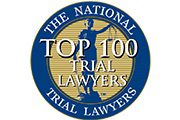REGISTERED NURSES & LICENSED VOCATIONAL NURSES CHARGED WITH DUI
ORANGE COUNTY'S "BEST" OR "TOP-RATED" DUI DEFENSE LAWYERS RATED BY SUPER LAWYERS, ORANGE COUNTY'S "TOP-RATED" DUI DEFENSE ATTORNEYS
DUI CHARGES - REGISTERED NURSES & LICENSED VOCATIONAL NURSES
CAN YOU HAVE A DUI AND STILL BE A NURSE - REGISTERED NURSE OR LICENSED VOCATIONAL NURSE?
Nurses RN/LVN facing DUI charges have a difficult road before them as Registered Nurses and Licensed Vocational Nurses and can face even harsher scrutiny than Physicians when it comes to be charged and convicted of a crime, even DUI. If you are a Nurse RN/LVN facing DUI charges, even a single DUI charge and/or conviction can result in discipline. Combine this with aggravating factors, such as a traffic collision, a high blood and/or breath alcohol concentration level, whether there were children in the vehicle at the time of the offense, and/or any other type of DUI Enhancement, will often only serve to increase your chances of facing discipline and the potential loss of your license.
NURSE RN/LVN FACING DUI CHARGES
If you are a Registered Nurse (RN), or a Licensed Vocational Nurse (LVN), and are now charged with a DUI in Orange County or anywhere in Southern California, you need an experienced DUI Defense Attorney who also specializes in the defense of Professional Licenses, particularly one who represents Nurses RN/LVN facing DUI charges and has familiarity with the Board of Registered Nursing (BRN) or the Board of Vocational Nursing and Psychiatric Technician (BVNPT).
California Registered Nurses (RNs) have always been required to disclose criminal convictions on license applications and on license renewal applications; however, beginning in July of 2014, the Board of Registered Nursing imposed a duty on Registered Nurses to self-report misdemeanor and felony convictions within 30 days of the date of conviction. (16 CCR 1441)
NURSES RN/LVN FACING DUI CHARGES - FREQUENTLY ASKED QUESTIONS
For Nurses RN/LVN Facing DUI Charges, Here Are Some Frequently Asked Questions for the Board of Registered Nursing (BRN) and the Board of Vocational Nursing and Psychiatric Technician (BVNPT).
ARE NURSES REQUIRED TO REPORT CRIMINAL CONVICTIONS, INCLUDING A DUI?
Nurses have a mandatory duty to report any conviction, or plea of guilty or no contest, within 30 days. A "conviction" includes the set aside or deferred entry of judgment pursuant to Sections 1000 or 1203.4 of the Penal Code, including misdemeanors, felonies, and even some infractions. It is not necessary to report a conviction for an infraction with a fine of less than $1,000.00, unless the infraction involved alcohol, such as DUI, or a controlled substance or substances.

REPORTING A CRIMINAL CONVICTION OR A DUI TO THE NURSING BOARD
The following information must be provided for each license discipline or conviction sustained:
- A detailed written explanation describing the circumstances and events that led to your arrest(s) and conviction(s), including: date and place of arrest; arresting agency; court where case was heard; and sentencing information, including fines, courses, counseling, restitution, probation, parole, community service, and jail or prison time.
- Documents relating to the arrest, such as: a police or arrest report, booking report, complaint, citation or ticket.
- Documents from the court, such as: Notice of Charges, Complaint, or Indictment; Plea Agreement, Sentencing Order, Probation Order, or Judgment; Dismissal, Probation Release, or Court Discharge.
- Any related mitigating evidence or evidence of rehabilitation that you want to provide.
Nurses RN/LVN facing DUI charges will need to understand that there is a mandatory reporting requirement if a conviction were to occur as a result of the DUI charges.
KEEPING YOUR NURSING LICENSE WITH A CRIMINAL OR DUI CONVICTION
The Board determines rehabilitation pursuant to Business and Professions Code §§ 480 and 490, and Title 16 California Code of Regulations Section 1444, the Board of Registered Nursing, and Board of Vocational Nursing and Psychiatric Technicians, utilize the following general criteria to determine satisfactory rehabilitation:
- The nature and severity of the act(s) or crime(s) under consideration.
- Evidence of any act(s) committed subsequent to the act(s) or crime(s) under consideration.
- The time that has elapsed since commission of the act(s) or crime(s) under consideration.
- The extent to which the applicant has complied with any terms of parole, probation, restitution, or any other sanctions lawfully imposed.
- Evidence, if any, of rehabilitation.
B&P § 490 a mandates that "In addition to any other action that a board is permitted to take against a licensee, a board may suspend or revoke a license on the ground that the licensee has been convicted of a crime, if the crime is substantially related to the qualifications, functions, or duties of the business or profession for which the license was issued." Thus making the need for an experienced DUI or criminal defense attorney that much more important.
HOW OFTEN ARE CRIMINAL OR DUI CONVICTIONS TO THE NURSING BOARD?
We have noticed an increase in the number of reportings to the Nursing Board and have become increasingly more and more diligent in following up on each reported conviction in order to ensure that proper disciplinary action is taken considering the severity of the respective crime. Do not take this on alone - contact an experienced professional license defense attorney to help keep your nursing license.
NURSING LICENSE & CRIMINAL OR DUI CHARGES - YOU NEED TO CONTACT A PROFESSIONAL LICENSE DEFENSE LAWYER FROM THE SOCAL LAW NETWORK IMMEDIATELY
If you have a nursing license and have been charged with a crime, including DUI, you need an experienced professional licensing defense lawyer who is familiar with the Board of Registered Nursing and the process associated with not only reporting the matter, but also with how to save your nursing license. The DUI/Criminal Defense Attorneys of The SoCal Law Network are experienced in not only how to report a crime, including a DUI, to the Board of Registered Nursing, but are also familiar with how to save your nursing license by presenting the right kind of rehabilitation and mitigation.
BOARD OF REGISTERED NURSING'S FREQUENTLY ASKED QUESTIONS
This information is taken directly from the Board of Registered Nursing website answering Frequently Asked Questions regarding arrests and/or convictions relating to criminal charges, including a DUI.
Do you have to report an arrest if you were not convicted?
No. You only need to report an arrest if you were convicted.
Do you have to report traffic violations and/or automobile accidents?
Yes, if a traffic ticket was issued and you were fined over $1,000.
What happens if you can't obtain certified court documents and police reports on convictions?
You must submit written proof from the court or police department specifying inability to locate the required documents. The Board verifies this and bases its decision on other substantial information (e.g., letters of recommendation, evidence of rehabilitation, etc.).
Do you have to report non-payment of child support?
No. However, if your case is in the District Attorney's (DA) Office for non-payment, the DA notifies the Department of Consumer Affairs Family Support Unit. If you are deemed eligible for licensure, your license is issued on a temporary basis for 150 days. If at the end of that time period, you have not established a payment agreement with the DA's Office, your license is suspended.
Do you have to report a conviction that was expunged (i.e., conviction was stricken or deleted from official records)?
Yes. Pursuant to Penal Code section 1203.4, you are required to report a conviction that was expunged. The law specifies that it does not relieve you from the obligation to disclose the conviction in response to any direct questions contained in any questionnaire or application for public office, for licensure by any state or local agency.
What happens if you fail to disclose all or part of your convictions?
Failure to disclose all or part of your convictions may be grounds for disciplinary action as you falsified information required on your renewal of licensure.
Do you have to report misdemeanors, felonies and/or convictions which you pled nolo contendere?
Yes. Pursuant to Business and Professions Code, section 2765, a plea or verdict of guilty or a conviction following a plea of nolo contendere is considered a conviction. Any conviction substantially related to the qualifications, functions and duties of a licensee can be grounds for discipline of a license.
Do you have to report convictions if you were under 18 years old and tried as an adult?
Yes. If you were under 18 years of age, but were tried and convicted as an adult, you are required to disclose the conviction.
Do you have to report military convictions or dishonorable discharge?
Yes. Any offense or violation during your military career must be reported to the Board on the Report of Conviction form.
How does the Board determine which violations are substantially related to the applicant's license?
Pursuant to Title 16, California Code of Regulations, Section 1444, a conviction or act shall be considered to be substantially related to the qualifications, functions or duties of a registered nurse if to a substantial degree it evidences present or potential unfitness of a registered nurse to practice in a manner consistent with the public health, safety or welfare. Such convictions or acts shall include but not be limited to those involving the following issues:
Assaultive or abusive conduct including, but not limited to, those violations listed in subdivision (d) of Penal Code Section 11160.
Failure to comply with any mandatory reporting requirements.
Theft, dishonesty, fraud, or deceit.
Any conviction or act subject to an order of registration pursuant to Section 290 of the Penal Code.
How does the Board determine satisfactory rehabilitation of an "applicant for licensure" or licensee?
Pursuant to Business and Professions Code sections 480 and 490, and Title 16 California Code of Regulations, Section 1444, the Board utilizes the following general criteria to determine satisfactory rehabilitation:
- The nature and severity of the act(s) or crime(s) under consideration.
- Evidence of any act(s) committed subsequent to the act(s) or crime(s) under consideration.
- The time that has elapsed since commission of the act(s) or crime(s) under consideration.
- The extent to which the applicant has complied with any terms of parole, probation, restitution, or any other sanctions lawfully imposed.
- Evidence, if any, of rehabilitation.
What does the Board look for on the Department of Justice (DOJ) and/or Federal Bureau of Investigation (FBI) reports?
The Board reviews the RAP sheets (i.e., criminal record reports) to ensure that the conviction history matches what you provided on your Report of Conviction form and to determine if the violation is related to the qualifications of a licensee.
How can you get a copy of your RAP sheet ( i.e., criminal record report)?
You may request a copy of your RAP sheet from the Department of Justice (DOJ). DOJ requires you to complete a "Record Review Process" form, complete another fingerprint card and pay a fee for processing. To obtain more information on this process, you must contact DOJ directly.
How long does a conviction stay on your RAP sheet?
The information contained on your RAP sheet is retained indefinitely. Therefore, you should always report all convictions. Failure to disclose all past convictions may result in disciplinary action.
BOARD OF REGISTERED NURSING LINKS
Click the link to learn more about License Discipline and Convictions from the California Board of Registered Nursing for Nurses RN/LVN facing DUI charges.
Orange County DUI Attorneys Providing DUI Defense in Orange County - Laguna Hills, Laguna Beach, Orange
CALL NOW!
FREE CONSULTATION: (949) 235-2250



